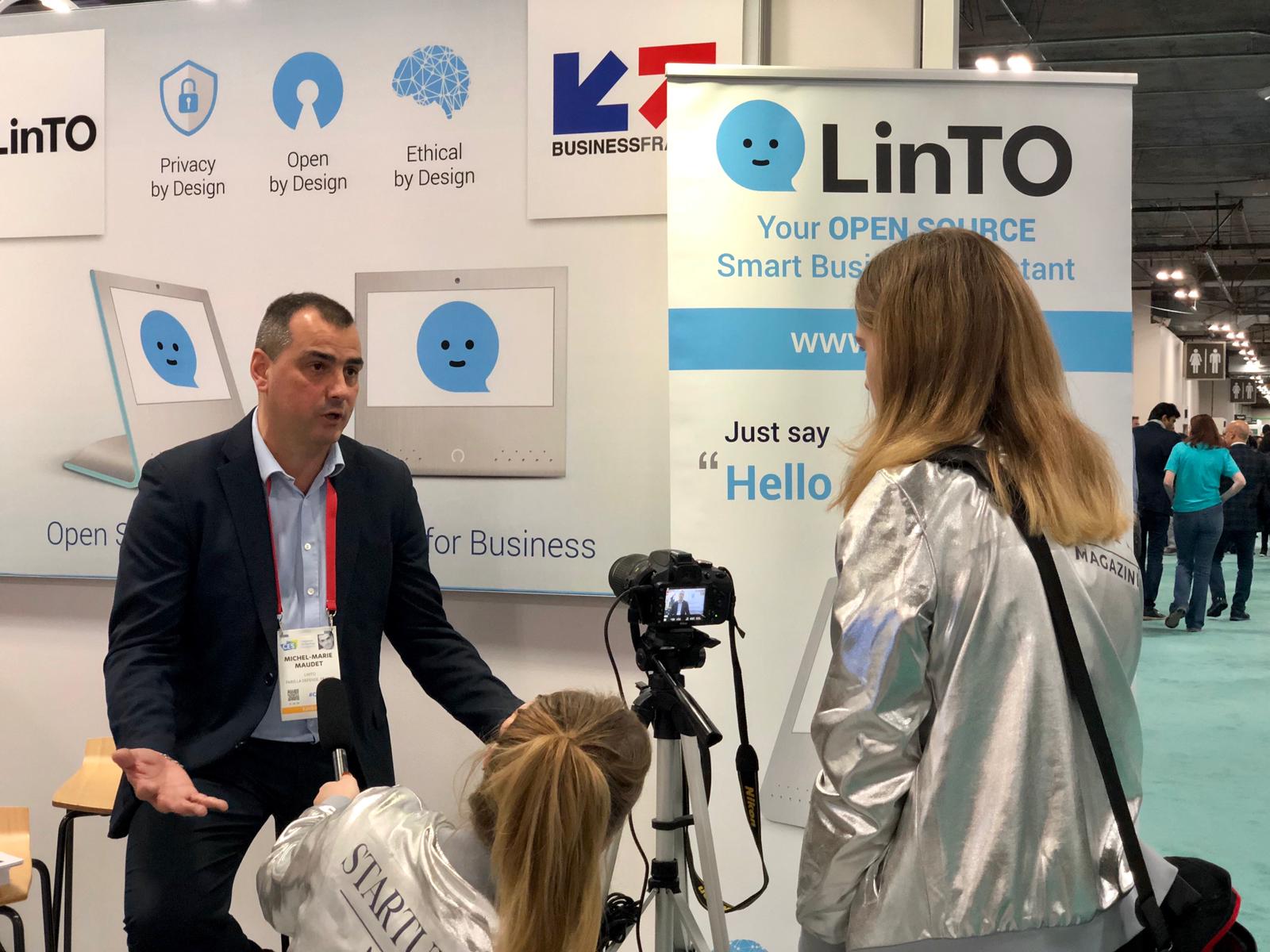We’re in awe of what young people are doing these days.
You can be 23, see a gap in the market for a magazine to serve the startup community, gather the support of stakeholders and then get your act together to create it. This is exactly what Daisy did in founding Startups Magazine. We caught up with her on how it all began and the constant inspiration she gets from startup founders.
Did you have a female role model or someone you admired as a kid?
Yes. My mum for sure. She was a single, working mum and taught me about tenacity and hard work. And she was the one to introduce me to strong female music artists, such as Dolly Parton and Whitney Houston. The lyrics of those power ballads spoke to me and preached independence.
How do you think your early years have influenced what you do today?
I’d say a lot. Like anyone, your childhood is a huge part of your identity. My mum instilled a sense of independence in me. I am one of four siblings and I remember always wanting to keep up with my older brother (and sisters).
At CLO PR we’re big fans of the Magazine. How did it all begin?
I work a publishing company called Electronic Specifier. I started out as the editorial assistant, then editor, then assistant managing editor. It was when I went to an IoT showcase where I met all these founders of businesses and learnt how they’d risked everything to get their product to market. This inspired me. I discovered this incredible startup community and realized that there was a lot of information missing in the market that these businesses and founders could benefit from. I pitched the Startups Magazine - my own prototype - to the directors. They, too, have a massive respect for founders starting something from scratch and were intrapreneurial in letting me get the Magazine off the ground. What started as a quarterly publication is now a bi-monthly magazine and it’s exciting to see it grow.
We’ve seen the decline of traditional media and the rise of journalism in new channels. Are you excited about the industry and what could come next?
Definitely. You really have to start looking at the audience and understand them deeply. You also need to understand the user experience – you can’t just put out information and see what sticks. Media are almost switching to a retro format, turning back into print. For us, we’re creating a tactile reading experience but expanding into podcasts and digital because we want to offer more than just long form content.
You’re clearly really passionate about supporting the rise of women in the tech industry. What do you think is stopping women from excelling?
The statistics say that investment in female businesses is desultorily low even though they are extremely profitable, which is depressing. There’s a huge issue of girls not going into and pursuing STEM subjects. You can probably name at least 20 female musical icons, but it’s harder to name female tech icons that can serve as role models. This is bound to change, with newcomers on the scene, but it will take time.
What do you think is missing from businesses in building true diversity?
There is a big debate on whether quotas can work but they can invite resentment. Change has got to be in the recruitment phase: if a white male is doing the hiring, you get more of the same. Proven statistics indicate that diverse boards are more profitable because you get more points of view. Historically, male traits such as assertiveness, have always been the most valued. But more and more, female-led traits like empathy are needed. I think many startups are trying to change this by trying to change this by not hiring based on stereotypically and traditionally ‘male’ traits, and be more open-minded to attract more diverse candidates.
Daisy in action
You are positive impact personified! What have been some of the most positive results you’ve seen from the work you do?
I get to see the impact in every issue of the magazine. My favourite event so far was our Women in Tech event September 2018, which left me feeling emotional and inspired. I saw all these women and me come together to highlight that there is more than one slice of cake and it’s about working together to even out the slices so everyone gets a piece. The event was filled with discussion and debate. Knowing we facilitated that was special.
How do you keep learning more whilst on the job?
I am learning all the time - no one knows everything. I learn about the industry every day when I talk to and interview businesses and I often put myself on courses.
What have been the essential factors that have enabled you to get to where you are today that you think you'd struggle without?
I think it’s a mixture of positive and negative personality traits. I’m stubborn, so if I have an idea I will throw myself into it. This can sometimes have a detrimental effect on my mental health. I’m also passionate. When you realise how much time you spend at work, you’ve got to be doing something you love. I made this role for me. I also learnt early on that if you’re not confident, fake it and others will believe you. I’m starting to believe in myself too.
Where do you get your inspiration?
The startups I interview. Interviews used to be with a friend of a friend and as the magazine grows, startups have started to come to us. We think hard about the issues in the tech industry we want to champion, like wellness and celebrating women in tech (which we do every year). It is always pinned to what can we do to help entrepreneurs and have a positive impact. We want to push them into the public eye, showing them that there is hope with people working in these areas.
Who's a woman to watch or someone you admire in 2019, who’s been featured in Startups Magazine?
It’s all the women we’ve interviewed! But one sticks in my mind – Lina Chan, the founder of Adia Health. She is ending the taboo around female health, encouraging us to talk about fertility issues. Adia Health supplies finger pricks to test fertility. It has opened up the discussion that this is a huge issue many people are going through.
What exciting plans do you have for the Magazine this year?
The Magazine is branching out a bit more with new issues as well as an awards ceremony. We are also hosting other mini popup events, podcasts, exhibiting at Unbound and Women of Silicon Roundabout. It’s a busy year already!
Catch up on what Daisy is up to on Twitter and LinkedIn and of course Startups Magazine itself on Twitter and Instagram.


![Me].jpg](https://images.squarespace-cdn.com/content/v1/5886fa35ff7c50ca414ef336/1562071830482-AE71L5NXXANGQ83OGOOG/Me%5D.jpg)



